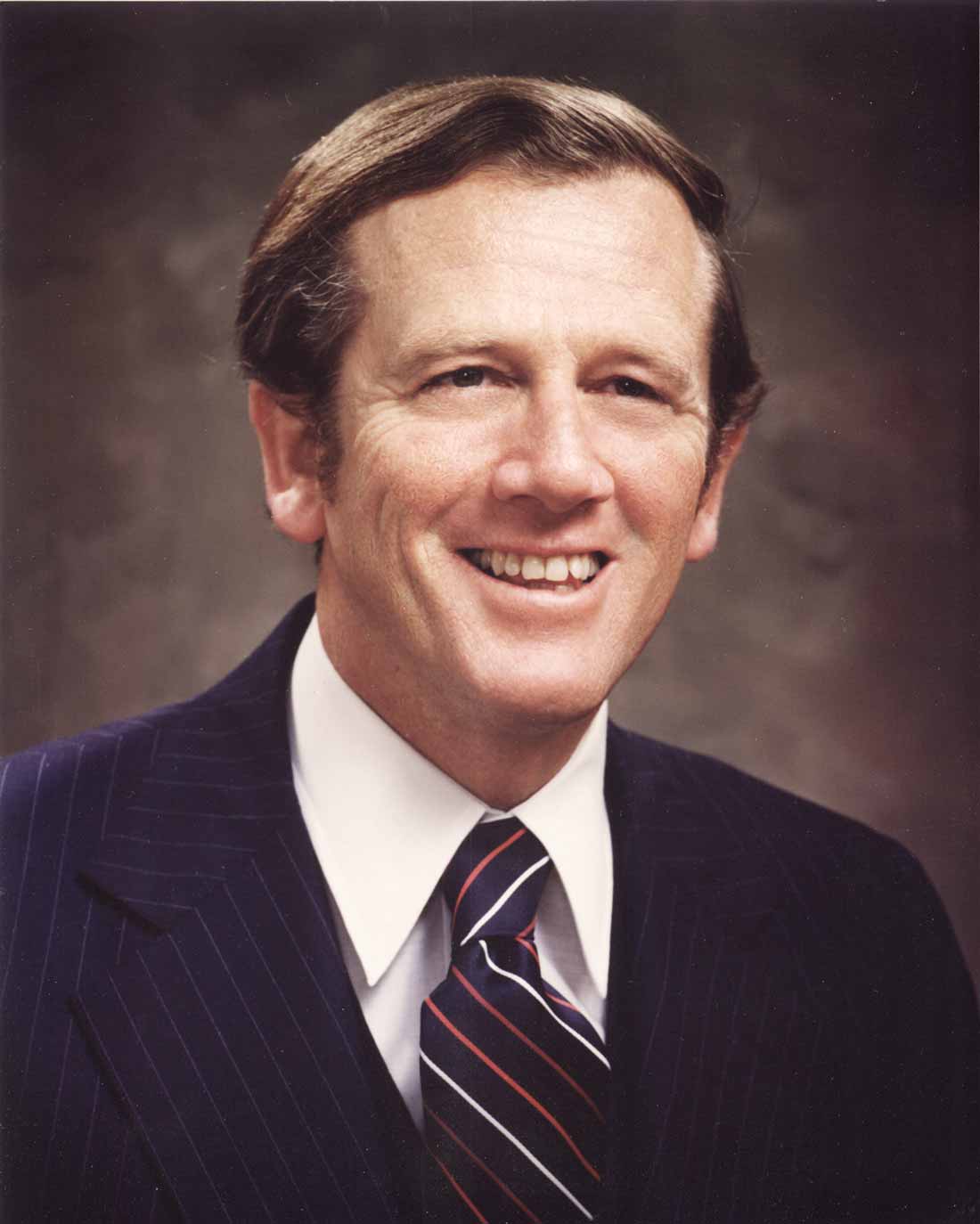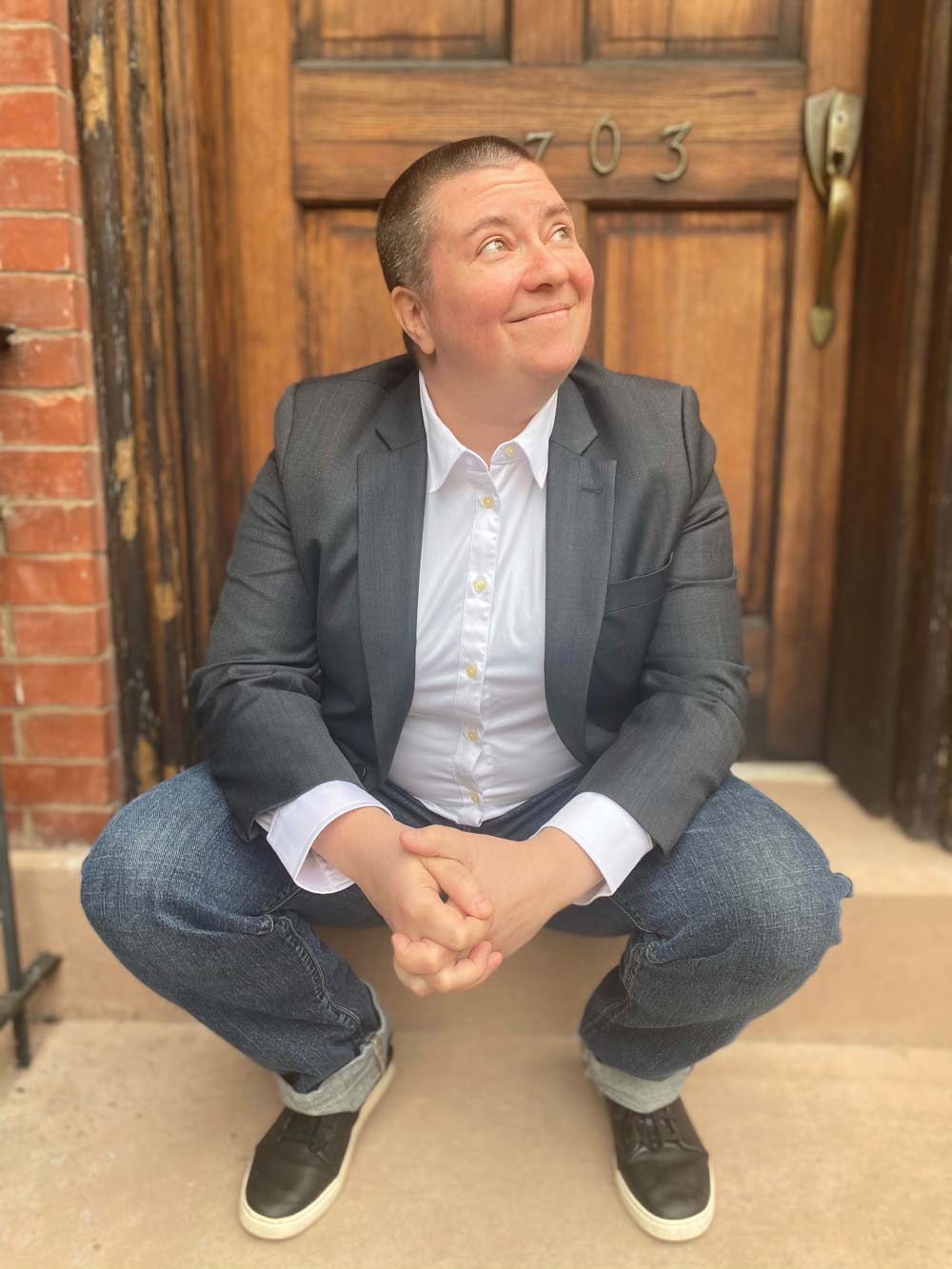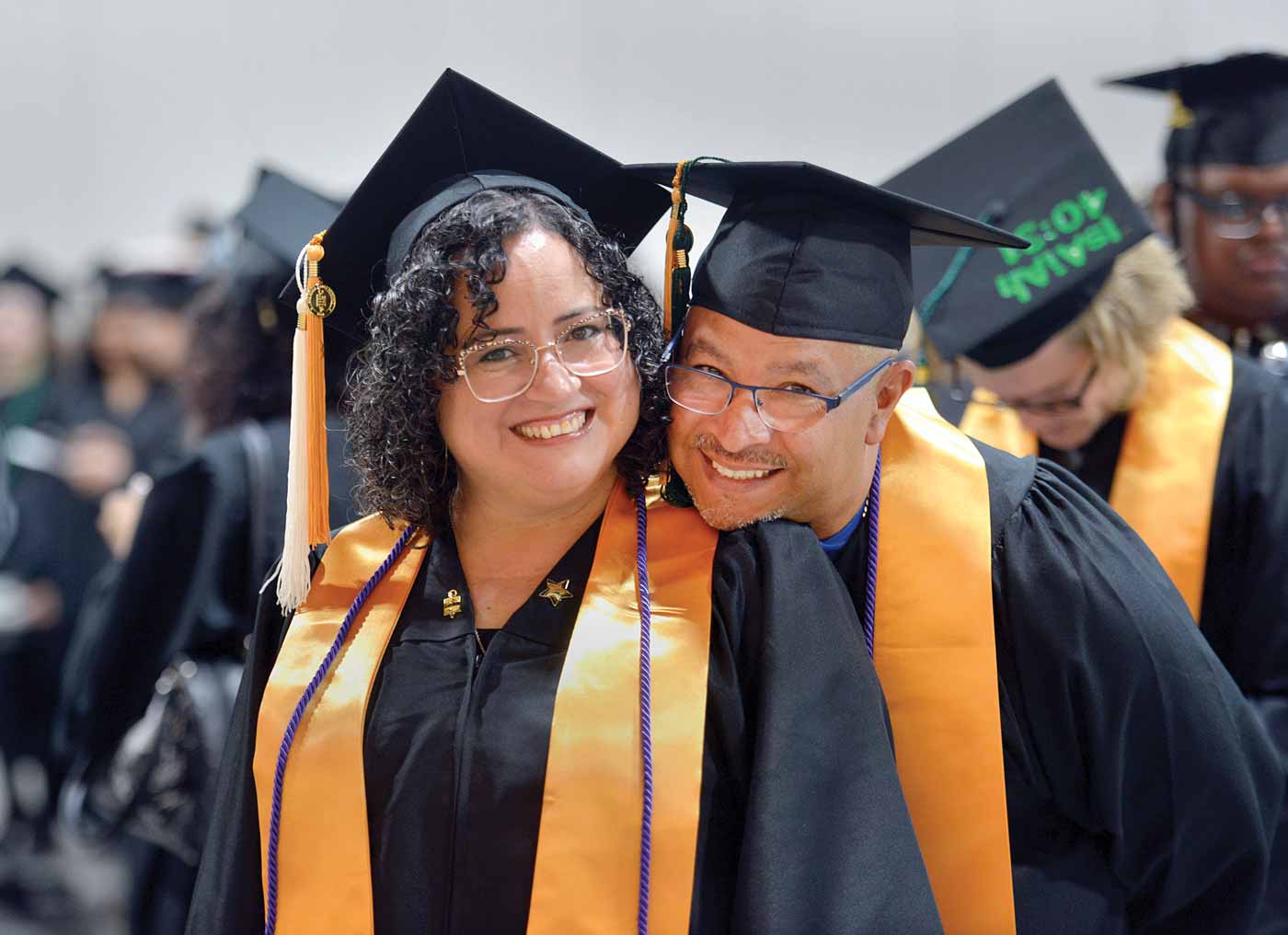HCC remembers its second president, David M. Bartley ’54
One day, back in the early 2000s, David Bartley, then the president of Holyoke Community College, summoned Jeffrey Hayden to a meeting in his office on the third floor of the Frost building. At the time, Hayden was the economic development planner for the City of Holyoke. He did not yet work at HCC — or report to Bartley.
“But in some sense, I felt like I did,” said Hayden. “I kind of felt like a kid going to the principal’s office.”
Bartley wanted to talk to Hayden about building a new road that would exit the south side of the HCC campus.
“He essentially made it my project and said, ‘You’ve got to help us out and make this happen,’” Hayden recalled. “David had a powerful personality. He was highly motivated, especially when he saw that it would be of benefit to the college.”
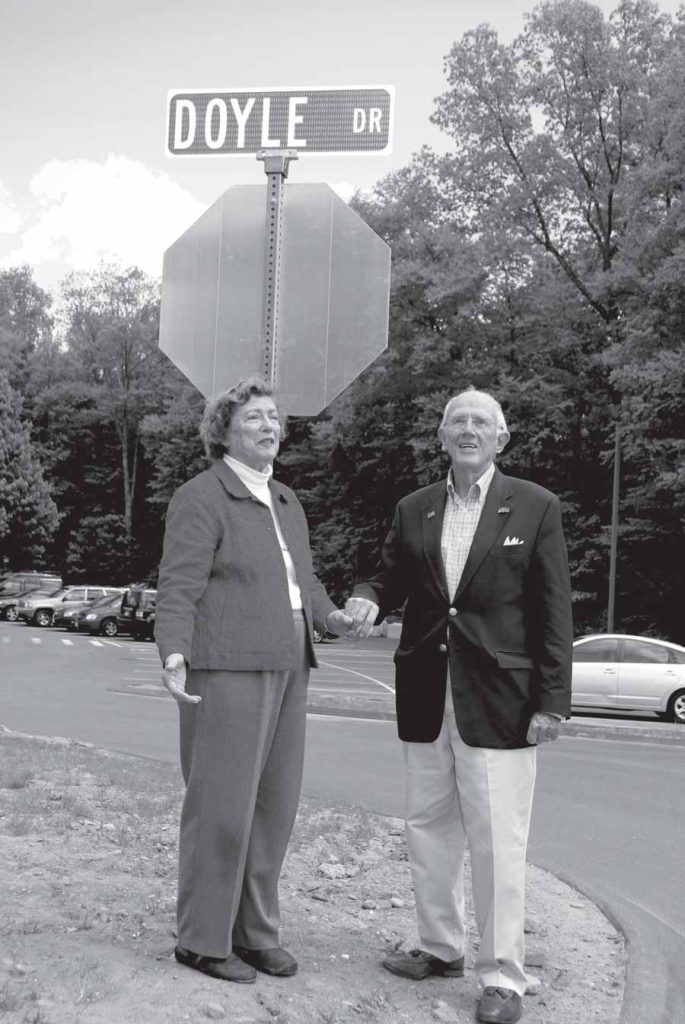
Years later, even after Bartley had retired from HCC after 28 years, he would periodically call Hayden to check up: “So where do we stand with the road?”
Although it took more than 10 years, Bartley finally got his road. On May 22, 2015, he was on campus for the dedication and grand opening of Doyle Drive.
“I respected David an awful lot because he had a passion for what he did,” said Hayden, now HCC vice president of Business and Community Services. “And, really, what he did was provide public service. He was really a force of nature.”
Bartley ’54, the college’s second president, a lifelong resident of Holyoke and a former Massachusetts Speaker of the House, died June 13 after several weeks of hospice care. He was 88 years old and remembered by those who knew and worked with him as a proud alum and fierce advocate for public education and for HCC.
“David loved the school,” said Angela Wright, one of Bartley’s classmates from the class of 1954 when it was still Holyoke Junior College (HJC). “He loved what it did for him, education wise and opportunity wise. We were all in the same boat. We couldn’t afford a four-year college or any of that. We were all working, and so he knew the value, personally, of a community college education.”
Bartley served as president of HCC from July 1975 to January 2004, a time of extraordinary growth and expansion, succeeding George Frost, the founding president of HCC.
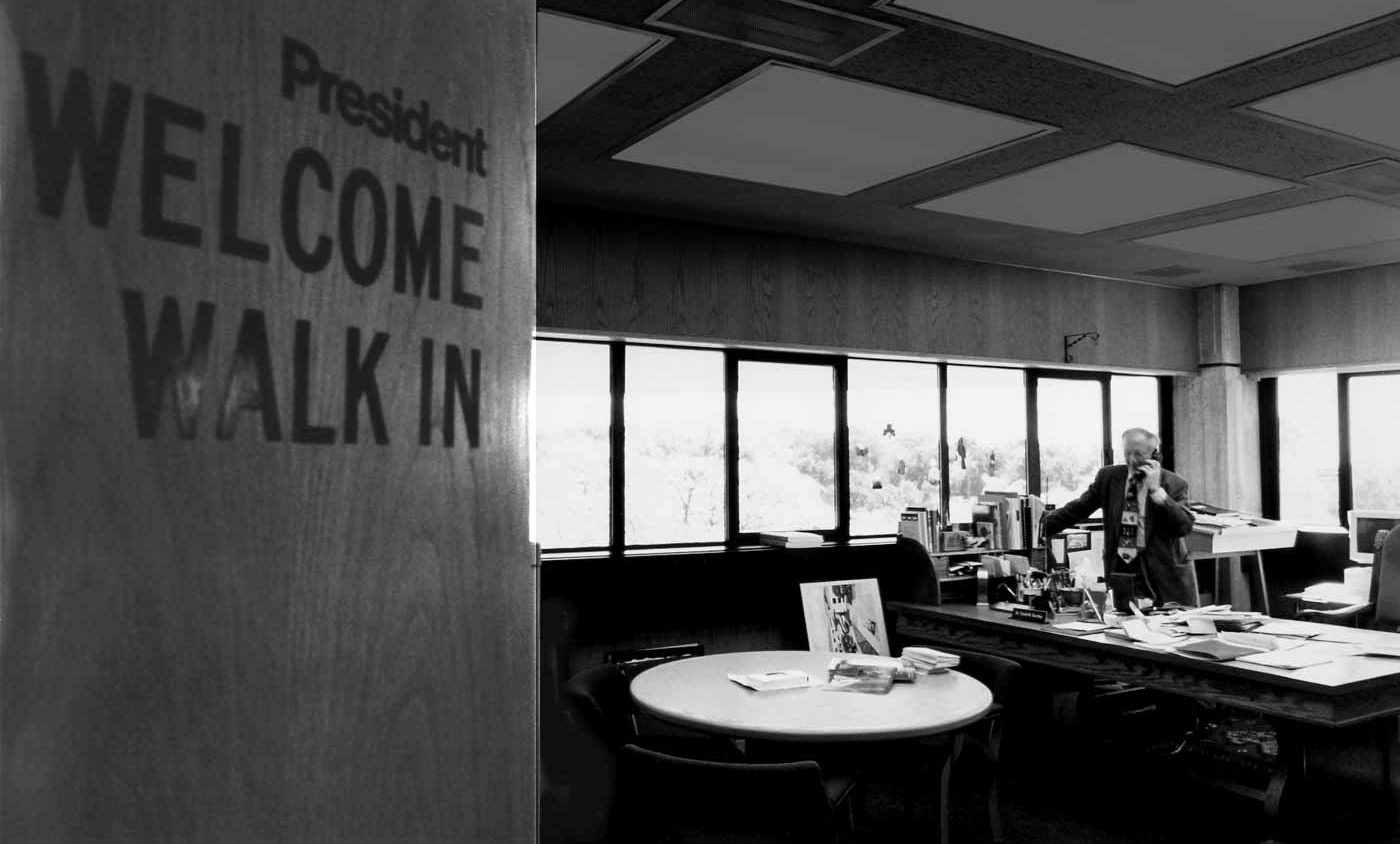
“I’m really going to miss him,” said Tom Stewart, HCC director of athletics, activities, and clubs, who worked with Bartley for eight years, before the latter retired, and maintained a close relationship with him thereafter. “He was really good for this place. He loved the school. He wanted kids to succeed.”
David M. Bartley served as president of Holyoke Community College from July 1975 to January 2004, a time of extraordinary growth and expansion, succeeding George Frost, the founding president of HCC.
Stewart, who is also director of the Bartley Center for Athletics and Recreation, said the former president’s philosophy is epitomized by the quote on the dedication plaque outside the building: “Holyoke Community College is four walls and a future.”
“That was his big thing,” said Stewart.
Francis Kane ’56, a friend since grammar school, called Bartley a great innovator, motivator, and visionary.
“He was a great leader,” said Kane, who served as a college trustee during Bartley’s presidency. “He never expected you to do anything that he wouldn’t do himself.”
Bartley lived his entire life in Holyoke in the Irish, working-class neighborhood of Elmwood, not far from Holyoke Junior College, where he enrolled in 1952 after graduating from Sacred Heart High School.
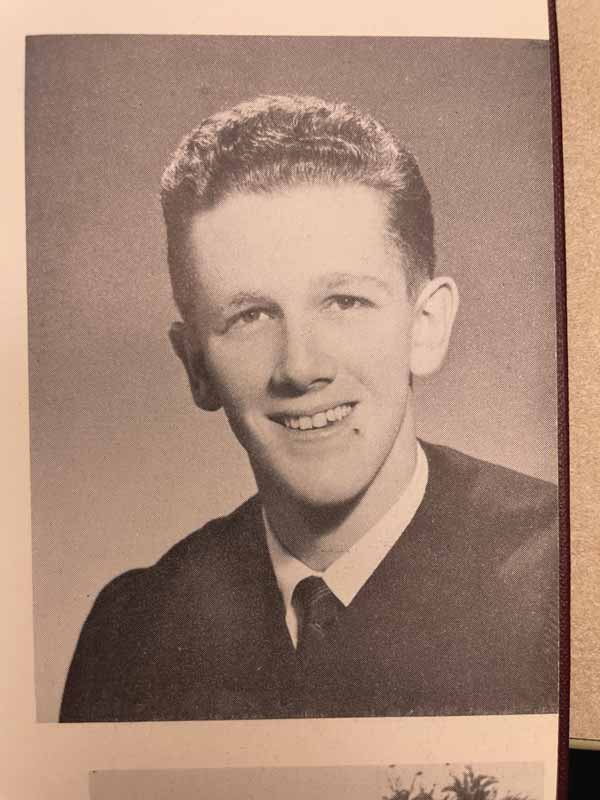
Bartley knew the value, personally, of a community college education.
During a 2021 HCC interview, Bartley credited George Frost, the founding president of HCC, for instilling in him a love of learning and a desire to pursue greater goals.
“He was my mentor, my friend, and the greatest guy I ever met in terms of education,” Bartley said.
At HJC, Bartley studied liberal arts and developed some of the political skills that would serve him well later as a state legislator and Speaker of the House. He was elected president of his freshman class and vice president of his sophomore class. He was a member of the yearbook staff, co-director of the annual variety show, and parliamentarian of the Student Council. He also played baseball and captained the HCC men’s basketball team.
For graduation, the faculty selected Bartley as the student who most contributed to Holyoke Junior College.
After HJC, Bartley transferred to the University of Massachusetts, where he was a star in the classroom and on the basketball court. After earning his bachelor’s degree, he taught for four years at Forest Park Junior High School in Springfield.
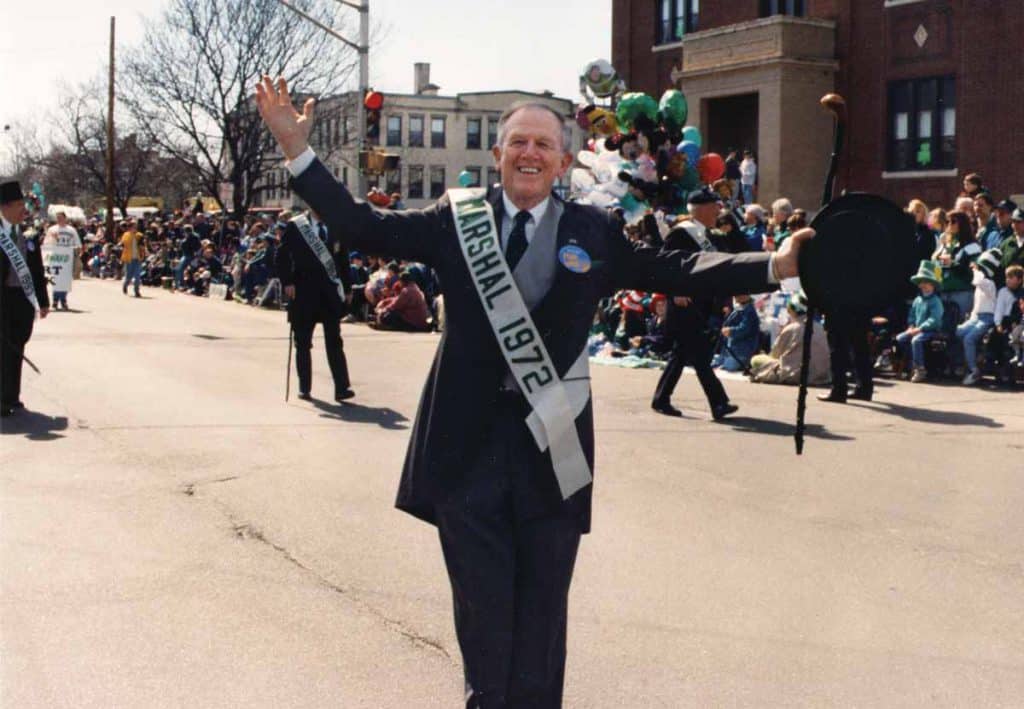
Politics, however, ultimately trumped teaching. He won a seat in the Massachusetts Legislature representing Holyoke in 1963. He assumed the speaker’s post in 1969 at the age of 32.
As speaker, Bartley’s influence was critical in securing the state funds required to construct a new campus on Homestead Avenue after the 1968 fire that destroyed the main campus building on Sergeant Street. To get it done, he worked together with another Holyoke native, Maurice Donahue, then president of the Massachusetts Senate.
“I would consider that David’s biggest achievement,” said Wright. “It was really David who rallied the troops. He used his best political skills and his knowledge and know-how to put the funding together to buy the Sheehan Farm (on Homestead Avenue). To me, he was a giant. He was a force in the right place. Come hell or high water, that college was going to be here. And the land had to be big enough, because he had a vision for the future of the school.”
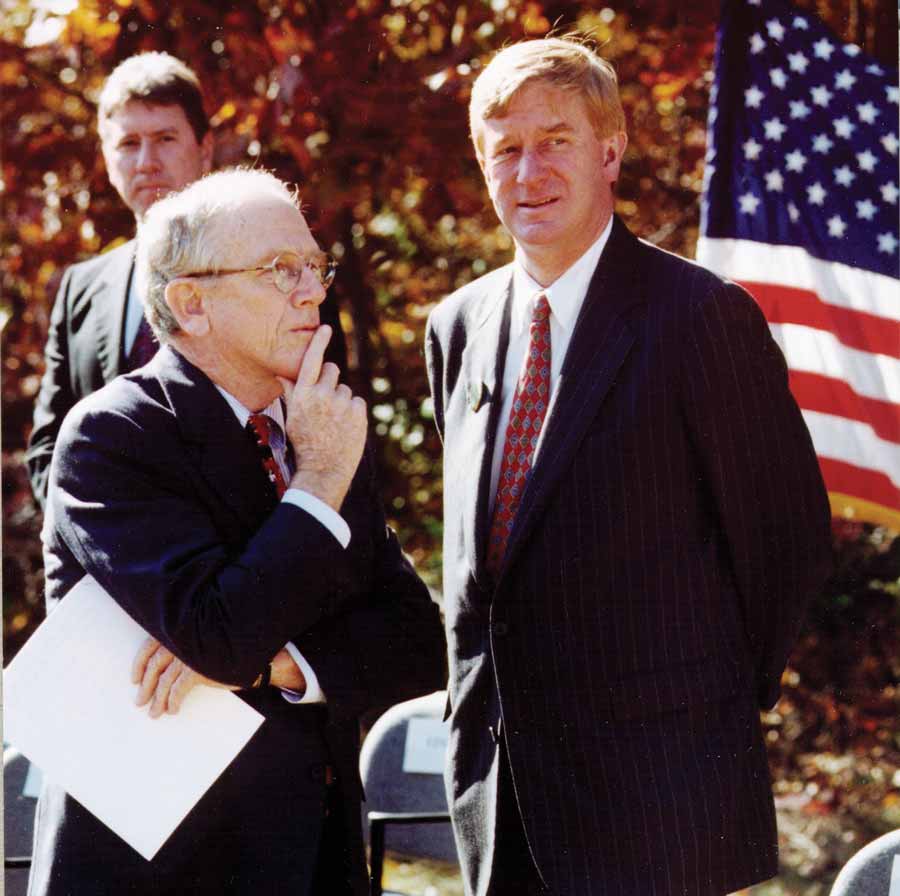
His legislative highlights included the Bartley-Fox Act, which imposed a one-year prison sentence for illegal gun possession, and Chapter 766 legislation that supported mainstreaming special needs students in public schools. In 1975, a year after the opening of the new campus, Bartley left the Legislature to succeed George Frost as president of Holyoke Community College.
“He had done all of the hard work; all I had to do was administer,” Bartley demurred. Like Frost, Bartley said, “I wanted to ensure that everyone had an opportunity for an education in western Massachusetts.”
Nevertheless, Bartley did a lot of hard work himself over the course of his 28 years as HCC president and left an indelible legacy.
One of his first initiatives as president was to start an alumni association, and the person he tapped to run it was George Frost. In the 1980s, at Bartley’s behest, HCC created the first philanthropic community college foundation in Massachusetts, the nonprofit HCC Foundation, which was launched with $200 left over from the Friends of Holyoke Community College, a fundraising organization created after the 1968 fire.
“What the hell is a foundation, David?” Kane, then a trustee, remembers saying at the time. “And he starts off with, ‘we’re going to spend the first two years raising friends of the college, people that we know are capable of helping us out with money, letting them know what’s going on at the college, and getting the message out through the media.’ And then we got to the point where we had to raise the money.”
And they did.
The Foundation awarded its first student scholarship in 1987. By the time Bartley retired in 2004, the Foundation endowment had reached $3 million. Today, the Foundation manages assets of more than $20 million and over the years has awarded more than $10 million in student scholarships while also helping the college build key academic facilities, such as the Kittredge Center for Business and Workforce Development, the Center for Health Education and Simulation, and the HCC MGM Culinary Arts Institute.
During his tenure, Bartley oversaw the construction of the Campus Center and the athletic facility he had long sought while also laying the groundwork for the Kittredge Center, which opened in 2006. He was a key backer of Biology Professor Elaine Marieb ’80 as she built her career as a textbook author and became one of the college’s largest benefactors.
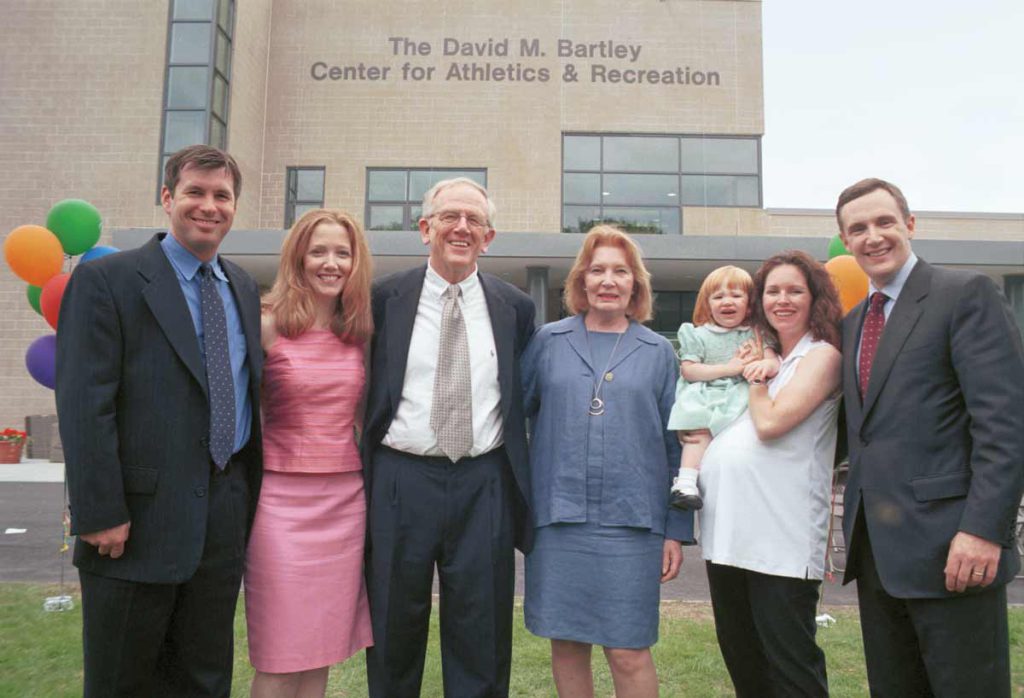
“He loved Elaine Marieb and courted her when she was here,” said Stewart. “He courted her after she left and her book took off. He gave her the support that she needed. She was very good to us. A lot of that was because of David Bartley.”
He was never shy about using his political influence to benefit the college.
“I have wonderful memories of him,” said Idelia Smith, the recently retired assistant vice president of Academic Affairs and a 41-year employee of HCC. “He was great fun to be with, and he drove
far too fast.”
Smith remembers Bartley loading up his Buick Electra 225 with HCC staff and tearing down the Mass Pike to the State House to lobby the legislature for money. “He’d roll underneath the State House and use the parapet where the legislators came in,” said Smith. “He stood up out of the car like he owned the place. They still referred to him as Mr. Speaker and he walked through like he was still the speaker. We were terribly impressed. It
was really nice to be with him because he knew who he was.”
Bartley, so family oriented in his personal life, brought that sensibility to his work at HCC, supporting faculty and staff through personal difficulties and making exceptions to rules and regulations to help them.
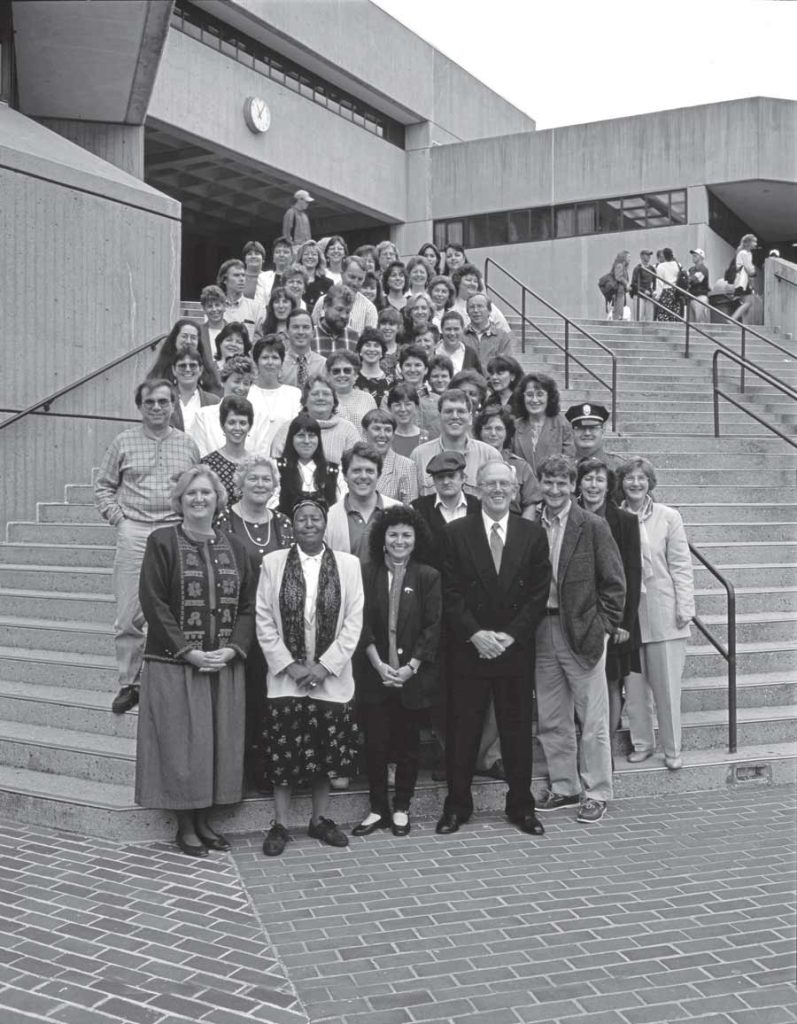
“He was good to us and to me, specifically,” said Smith. “He was very fatherly. It was wonderful having someone like that at the helm.”
Unlike many college presidents, Bartley was not an academic stalwart, said Stewart. Though he did later go back to UMass for his master’s degree and Ph.D., he was more of a people person.
“Nobody was too big or too small for David,” said Stewart. “Everybody was part of David’s team. He treated everybody the same, which was unusual for a man in his position.”
He was not above bending over to pick up trash or pulling over to assist a groundskeeper with car trouble, Stewart said.
And he ran a tight ship.
“We all got a piece of David once in a while,” said Stewart. “The old line was, ‘If you can’t get it done, I’ll find someone who will get it done.’ And it got done.”
His demands could sometimes cause friction, and he knew it. “He always said to me, ‘Tommy, it’s very lonely at the top, and it’s very windy too,” said Stewart.
William Messner, HCC’s third president, said his predecessor deserves credit for building HCC into an “absolutely rock solid academic institution.”
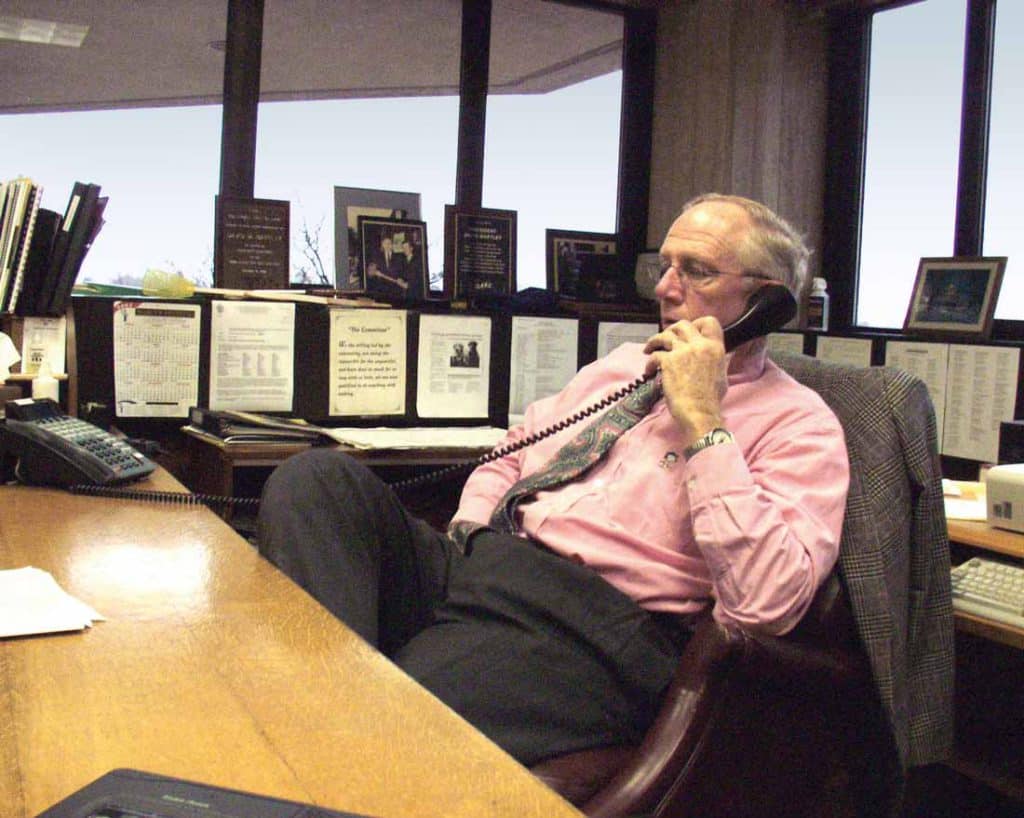
“He did a hell of a job building the institution,” said Messner. “While, of course, the faculty are primarily responsible for delivering a first-class education, David made sure that he had in place a faculty who did that very thing. That was, in my estimation, his priority, and I think he did it damn well.”
While Bartley was president, enrollment at the college grew from about 2,000 to more than 6,500. He remains the only community college graduate in Massachusetts’ history to serve their alma mater as president.
“I have been at this college nearly 30 years,” Bartley said in 2003. “Each year has been exciting and rewarding. I have watched dramatic changes occur at this institution over the past three decades. There are challenges ahead, but the college is well positioned to continue its role as one of the leading community colleges in the state.”
In retirement, he remained closely connected to the college, playing in the HCC Foundation’s annual fundraising golf tournament that he co-founded, serving for many years on the HCC Foundation Board of Directors, and creating the Dr. David M. ’54 and Bette Bartley Scholarship.
In her first days as HCC’s fourth president, Christina Royal received a letter from Bartley welcoming her to the community, a gesture she greatly appreciated. A friendship grew out of their conversations over the years about the college, the city, and the region.
“He was present at my inauguration in the fall of 2017, and I distinctly remember looking his way during a moment of applause. He seemed so very proud of this college,” said Royal, who retired in July. “HCC would not be the gem it is today without former President Bartley. How fortunate we are to have been beneficiaries of his leadership and generosity.”
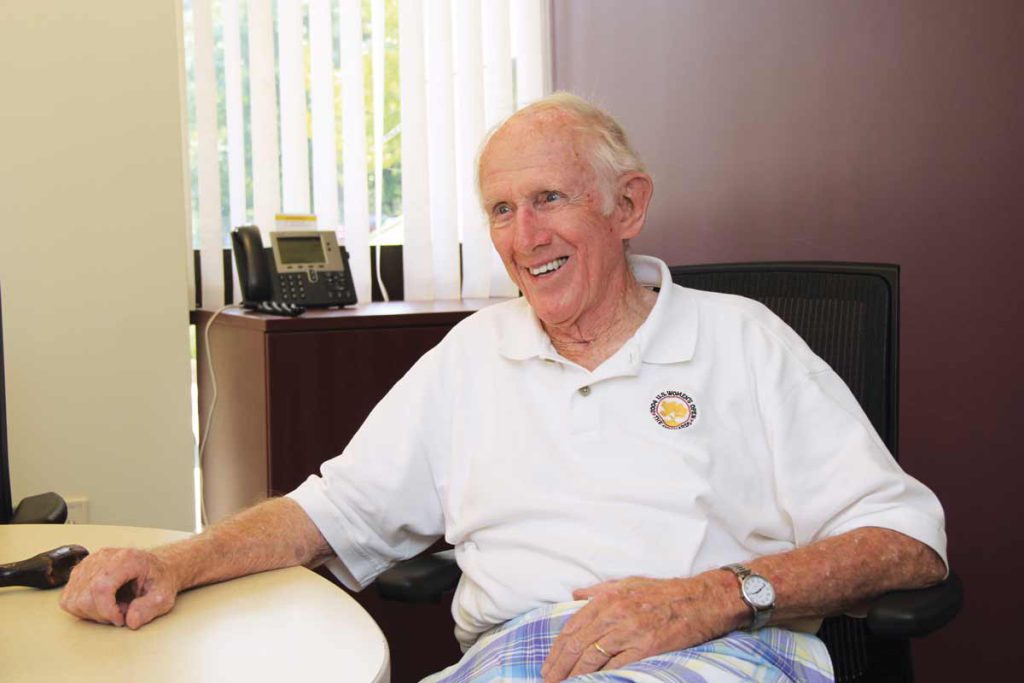
Bartley leaves his wife of nearly 60 years, Bette Bartley, sons Myles Bartley, a New York lawyer, and David K. Bartley, a lawyer and Holyoke City Councilor, and daughter Susan Bartley, who works at the MassMutual Center.
On June 20, after a Catholic mass at Blessed Sacrament Church, Bartley’s funeral procession made its way up Homestead Avenue and past the main entrance to HCC, where staff and students were waiting to pay their final respects. Among them was alum Brian Burns ’85, a 36-year staff member, former HCC police sergeant and current maintainer, whose mother, Eleanor, had worked at HCC for 23 years, and whose wife, Cynthia ’86, and two daughters, Emily ’16 and Erin ’19, are also HCC graduates.
As the procession slowed to acknowledge the crowd, Burns raised up a hand-made sign that said, simply, “Thank You.”
Freelance writer Dennis Hohenberger contributed to this story.


